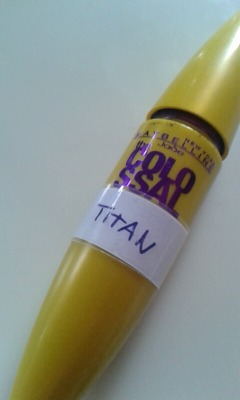ningen-suki: I’m reading through the new guidebook again, and just realized that the word ‘sin’ is used a few more times, in very specific contexts. The word ‘sin’ is used on this page when describing that titans are actually humans who have
![]()
ningen-suki: I’m reading through the new guidebook again, and just realized that the word ‘sin’ is used a few more times, in very specific contexts. The word ‘sin’ is used on this page when describing that titans are actually humans who have
![]()
ningen-suki: I’m reading through the new guidebook again, and just realized that the word ‘sin’ is used a few more times, in very specific contexts. The word ‘sin’ is used on this page when describing that titans are actually humans who have

ningen-suki: I’m reading through the new guidebook again, and just realized that the word ‘sin’ is used a few more times, in very specific contexts. The word ‘sin’ is used on this page when describing that titans are actually humans who have

ningen-suki: I’m reading through the new guidebook again, and just realized that the word ‘sin’ is used a few more times, in very specific contexts. The word ‘sin’ is used on this page when describing that titans are actually humans who have

ningen-suki: I’m reading through the new guidebook again, and just realized that the word ‘sin’ is used a few more times, in very specific contexts. The word ‘sin’ is used on this page when describing that titans are actually humans who have

ningen-suki: I’m reading through the new guidebook again, and just realized that the word ‘sin’ is used a few more times, in very specific contexts. The word ‘sin’ is used on this page when describing that titans are actually humans who have

ningen-suki: I’m reading through the new guidebook again, and just realized that the word ‘sin’ is used a few more times, in very specific contexts. The word ‘sin’ is used on this page when describing that titans are actually humans who have

ningen-suki: I’m reading through the new guidebook again, and just realized that the word ‘sin’ is used a few more times, in very specific contexts. The word ‘sin’ is used on this page when describing that titans are actually humans who have

ningen-suki: I’m reading through the new guidebook again, and just realized that the word ‘sin’ is used a few more times, in very specific contexts. The word ‘sin’ is used on this page when describing that titans are actually humans who have

ningen-suki: I’m reading through the new guidebook again, and just realized that the word ‘sin’ is used a few more times, in very specific contexts. The word ‘sin’ is used on this page when describing that titans are actually humans who have

ningen-suki: I’m reading through the new guidebook again, and just realized that the word ‘sin’ is used a few more times, in very specific contexts. The word ‘sin’ is used on this page when describing that titans are actually humans who have

ningen-suki: I’m reading through the new guidebook again, and just realized that the word ‘sin’ is used a few more times, in very specific contexts. The word ‘sin’ is used on this page when describing that titans are actually humans who have

ningen-suki: I’m reading through the new guidebook again, and just realized that the word ‘sin’ is used a few more times, in very specific contexts. The word ‘sin’ is used on this page when describing that titans are actually humans who have










